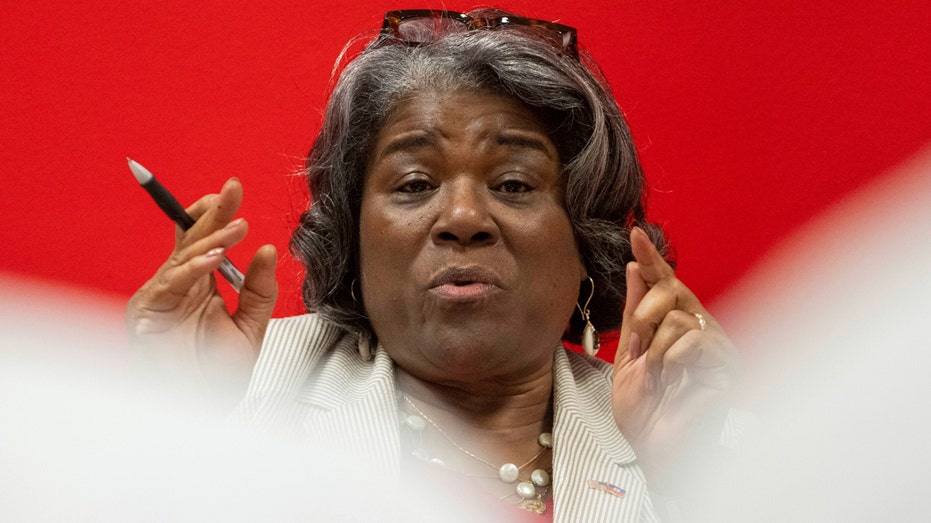UN ambassador announces $60M in aid, police resources for Haiti
U.S. Ambassador to the United Nations Linda Thomas-Greenfield announced an additional $60 million in humanitarian aid for Haiti while in the nation Monday.

The U.S. ambassador to the United Nations announced $60 million in additional humanitarian assistance to Haiti during a trip Monday to the troubled Caribbean country.
Ambassador Linda Thomas-Greenfield also said the U.S. Defense Department would provide a "substantial increase" in mine-resistant vehicles to a U.N.-backed, multinational security mission led by Kenya to help Haiti’s national police combat widespread gang violence.
The announcement came nearly a week after a second Kenyan contingent of 200 police officers arrived in Haiti, following the first contingent of 200 officers last month.
"We know that progress isn’t lineal. There will be inevitable setbacks and stumbling blocks, and yet this mission has opened a door to progress," Thomas-Greenfield said.
She said the USAID assistance, which now totals more than $165 million this fiscal year, would fill gaps in nutrition, food security and shelter; improve water and sanitation services; and provide Haitians with cash to buy basic goods.
Earlier Monday, Thomas-Greenfield met with Kenyan police and leaders of Haiti's new transitional government as part of a one-day visit to encourage action on Haiti's humanitarian crisis and political reform leading to democratic elections that have yet to be scheduled.
"This isn’t a naïve sense of hope, but I do have a sense of hope. This has been a remarkable day on the ground," she said.
There has been wide international support for the new transitional government led by Prime Minister Garry Conille, a former U.N. development specialist who assumed the post in early June. Earlier this month, he told the U.N. Security Council that the Kenyan police will be crucial to helping control the country’s gangs and moving toward democratic elections.
Gangs have grown in power since the July 7, 2021, assassination of President Jovenel Moïse and are now estimated to control up to 80% of the capital and surrounding areas. A surge in killings, rapes and kidnappings has led to a violent uprising by civilian vigilante groups.
According to U.N. agencies, the violence has displaced 580,000 people, more than half of whom are children, and resulted in 4 million people facing food insecurity.
Haiti had asked for the immediate deployment of a foreign armed force to fight gangs in late 2022, and U.N. Secretary-General António Guterres appealed for months for a country to lead the force before the Kenyans came forward.
The multinational force will eventually total 2,500 personnel from Kenya, the Bahamas, Bangladesh, Barbados, Benin, Chad and Jamaica. They will be deployed in phases at a cost of some $600 million a year, according to the U.N. Security Council.
The U.S. has provided over $300 million to the force, whose formation was supported by a U.N. resolution.
The Kenyan police will train the Haitian national police for joint security operations that have not yet begun, the official said.






















